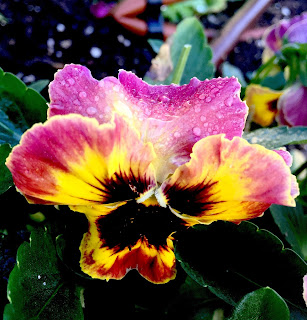With autobiographies, which stories intrigue the most? The Hero who solves it all? Probably not.
Notice the individual who combines heroic facets with loser traits. Or, applaud for the loser who finds winning qualities? The texture of fragility and results intrigues.
When you write aspects of your life story, consider details and ways to mold the great and the gooney. Add habits you'd like to alter as well as your strengths. Show the failures and their potential for choices.
Avoid sharing a one-dimensional approach. Choose to describe your tragic nature, a sensitivity, your passivity, your loyalty, and duplicitous nature. Write about the poor choices and lack of communication skills. Add the anger and frustration you feel to show how struggles evolve.
Reveal your life by showing events and behavior rather than telling the reader what to expect. Encourage your writing to unfold like a camera's view.
Ask someone to make realistic comments about your personality. Embroider them into your presentation.
Add mentors and individuals who challenge your process.
Explain how you master your life through its negativity and opportunity.
Let the lowlights shine through to accent the positive.
















